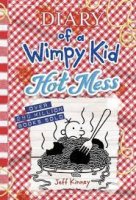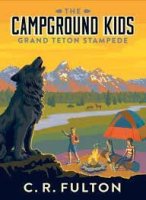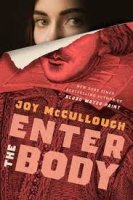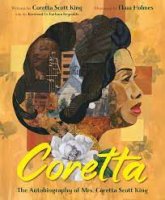Thirteen-year-old New Yorker Rory Hennessy can see things no one else can. When a magician's trick opens his eyes to Mannahatta, Rory finds an amazing spirit city coexisting alongside modern-day Manhattan. A place where Indian sachems, warrior cockroaches, and papier-mache children live, ruled by the immortal Gods of Manhattan - including Babe Ruth, Alexander Hamilton, and Peter Stuyvesant. But Rory's power to see Mannahatta brings danger, and he is pursued by enemies, chasing history and trying to free those who have been enslaved. And when he is given the chance to right Mannahatta's greatest wrong, seeing Mannahatta may not be a gift after all. . . .---from the publisher
340 pages 978-0142413074 Ages 8-12
Keywords: fantasy and magic, historical fiction, gods, action/adventure, quest, New York, 8 year old, 9 year old, 10 year old, 11 year old, 12 year old
Also in this series: Spirits in the Park; Sorcerer's Secret
************
Other reviews:
Fantasies for children that are set in New York take the surreal aspects of the city itself and extend them to their natural extremes. Luli Gray's, Falcon's Egg discussed the possibility of dragons in Central Park (and Nancy Springer's Dusssie did the same thing with Gorgons). Changeling by Delia Sherman covered a range of magical areas, from Broadway to the very sea. And Neal Shusterman's Everlost did some questionable, if original, things with the Twin Towers. The difference between these and Gods of Manhattan is that it aims higher . . . and falls further as a result. A set of ill decisions that could easily have been avoided combined with an ending that is oddly insulting takes this otherwise fun fantasy into dangerous sketchy territory. It will be popular, but it is too flawed to support entirely.
Thirteen-year-old Rory Hennessy has a weird kind of gift. As far as he knows, all his life he's been able to see through the tricks and machinations of professional magicians. But when a strange fellow calling himself Hex comes to Rory's house to do a show for the boy's little sister Bridget, the man manages to open Rory's eyes in a way he's never known. Now he can see stone gargoyles swallowing pigeons whole and cockroaches riding rats like they were horses. A whole new world has revealed itself to Rory and it is a world that goes by the name of Mannahatta. As it turns out, Rory is what's known as a "Light", and he is a most uncommon fellow. Here in Mannahatta, all those historical figures that made their imprint on the island's memory, be it big or small, are remembered as Gods of Manhattan evermore. People like Babe Ruth, Frederick Douglass, and Walt Whitman are ruling the city, but dark dealings are afoot. A group of Indian spirits from the Munsee tribe is trapped in Central Park. Now it is up to Rory to free these spirits and avoid the evil machinations of a mysterious Willem Kieft before everything goes terribly wrong.
Here are the assumptions that I was making when reading this book. If you don't agree with them, then you probably won't have the same problems with the story that I did. So, the idea is that if you are famous in New York and remembered by its residents then you remain as a kind of god after your death. Fair enough. What's more, even if you've ended up a kind of urban legend or vague story, you can still be a god. There's a god of shoplifting, a god of guilt, and so on and so forth. There are quite a lot of gods in this book too. In fact, if you turn to the Cast of Characters at the beginning you can see the names of the top twelve. The Council of Twelve consists of the twelve gods that rule all the others. Now take a close look at these guys. Take a good long look. Do you see anything strange about these them? Could it be that they are all white, with the exception of "Caesar Prince", who happens to be a made up character? This seemed a tad odd to me. I mean we're talking about the gods that rule Manhattan. Since when was Manhattan ever an all-white burg? So I took a closer look at the book and here are the stats I came up with.
Number of black characters in the book: 3 (two made-up, one a real historical figure) Number of Jewish characters in the book: 1 (a murderer who is killed right at the start) Number of Dominican characters in the book: 0 (in spite of the fact that the hero lives in Inwood) Number of Hispanic characters AT ALL in the book: 0 Number of Asian characters in the book: 0
Curiouser and curiouser. How on earth does a person go about writing a book about the people who represent Manhattan and make almost all of them white? Then I took a closer look at exactly whom Mebus has selected to represent us. The Goddess of Trends is Zelda Fitzgerald. Hunhuna? Call me kooky, but wouldn't Madame C.J. Walker, who New York schoolchildren actually learn about in school and who was black, be a better choice?
You might point out that Harry Potter and the Percy Jackson books aren't exactly bastions of multicultural values either, but that's not exactly fair. Harry Potter takes place in British boarding schools. Not New York. Percy Jackson takes place at camp. Not New York. New York City is as wonderful as it is precisely because of the multiple ethnicities and races that have built it up over the years. And when you write a book that discusses the gods of the city and then proceed to make almost ALL those gods white, you are doing a disservice to the very people who have helped to make Manhattan the way it is today.
The thing is, I can see schoolteachers in New York City gleefully plucking this book up to use in class. What better way to introduce kids to Walt Whitman, Peter Stuyvesant, or Adriaen van der Donck? But at the same time, what a throwback to old curriculums that ignored lesser known and important people. You'll find no Percy Suttons here. No Madame C.J. Walkers. Not even an Italian like Fiorello H. LaGuardia.
And then there are the Indians. When I first picked up the book I was a little surprised to see a blurb on the back from Joseph Bruchac. Mr. Bruchac has certainly written a couple fantasies in his time (I'm a big fan of Wabi: A Hero's Tale) but not so many that he'd be the first fellow you'd think of when you wanted to promote a fantasy novel. Usually a publisher would contact a Tamora Pierce or a Rick Riordan. But when I saw the Indians in this book it all fit together. Ah. Joseph Bruchac is Native American himself. And if people started saying that the Indians in this book were akin to the ones in Peter Pan what better argument to present them with than the fact that Joseph Bruchac himself approved? Truth be told, I was never comfortable with the Indians for most of this book, but I decided to play along. If Mebus wanted to make some kind of a point about the island's original inhabitants (all the while ignoring the non-white immigrants) who was I to object? So I read it through and everything was fine . . . until I got to the end.
Spoiler Alert: For those of you who wish to keep everything a surprise. Everybody ready? Okay. So for much of the book Rory's quest is to find the objects that will allow him to free the Munsee tribe from their prison in Central Park. The villainous Willem Kieft has kept them there for years and the Indians have grown, quite understandably, more and more pissed off as a result. But just when the hero is about to free them, he is saved from making a terrible mistake. Rory has had a dream where a Munsee friend from his youth, Wampage, has told him that if he frees the Indians horrible things will happen. You see, because the Indians are so angry they want revenge on the people who have trapped them there. No surprise. So FOR THEIR OWN GOOD Rory is to keep them trapped against their will until they cool off a little and everything's copacetic. I will repeat that: The white kid decides to keep the Indians trapped because otherwise they might just hurt themselves by being too angry. I was more than the teensiest bit shocked when I read this. Seriously? We can't trust Indians to rule themselves wisely? They need intervention because otherwise they'll do stupid things? Am I the only one who sees a problem with this?
The crazy thing is, there's a lot to like here. In fact, if you were an average white kid reader, you might think this was a pretty cool book. There are paper mache bodies and lots of exciting chase and action sequences. The dialogue is tons of fun and the main character and sister are great kids to follow. I liked sentences like, "He knew she couldn't see what he was seeing. Because he was going crazy and that's not really a team sport." And to Mebus's credit, he makes Alexander Hamilton the slimy fish he really was. And Aaron Burr and Willem Kieft as your villains? Inspired. Who could be a better New York duo (though Boss Tweed would have been my personal pick)? But if you delve even a little below the surface of the story you see how privileged, white, and patronizing the book gets at times. It just seems like an incredible waste. Mebus is clearly talented, and I have high hopes for his future books. I don't know why nobody ever mentioned to him how insulting the book could feel at times. Maybe they just weren't paying attention.
In the end, Mebus has written a book that is about a very interesting place, but it is not Manhattan. Anything above 110th Street (aside from an oddly gentrified Inwood seen here) is ignored entirely. New York is more than just the white residents that made it famous. It may well be that fantasy fans ignore these details and love the book for its snappy writing and crisp dialogue. For those of us who can see what's missing, it's a harder sell. A good concept and an interesting story, sure. But in the end a novel of this sort is the sum of its parts. And with significant parts missing, there's only so much you can save. Hopefully we'll see less simplified material from Scott Mebus in the future.---from Betsy Bird on Goodreads






